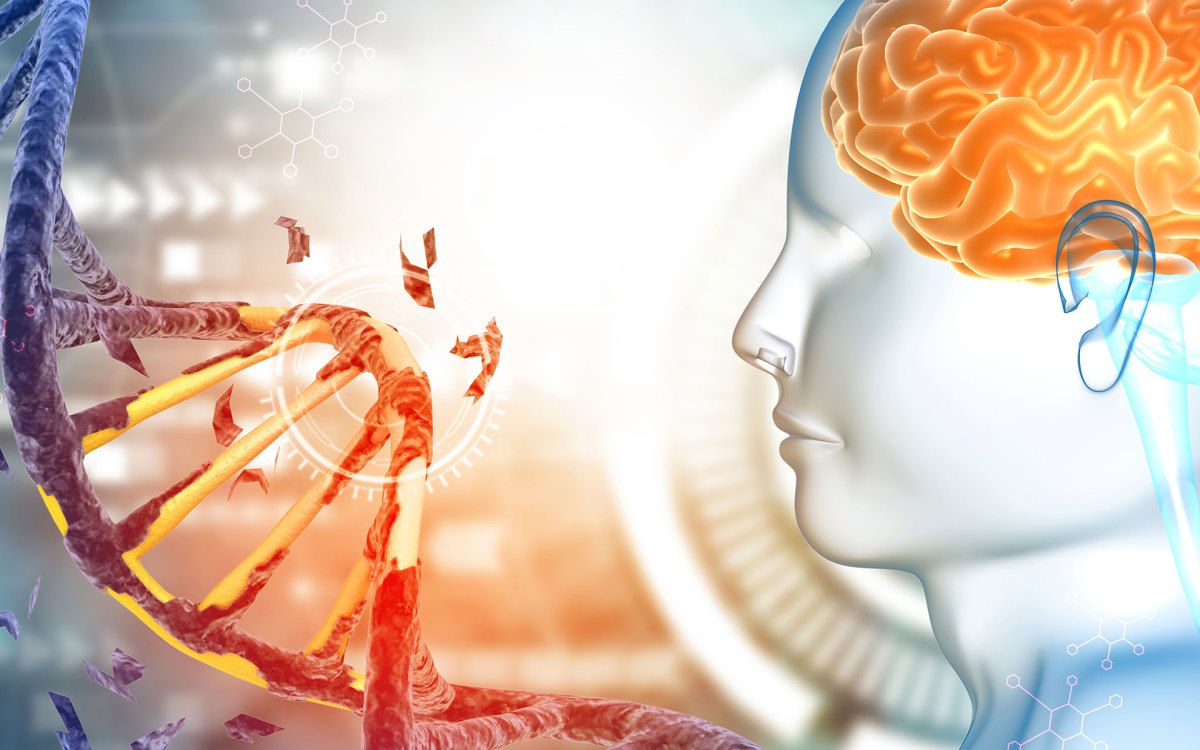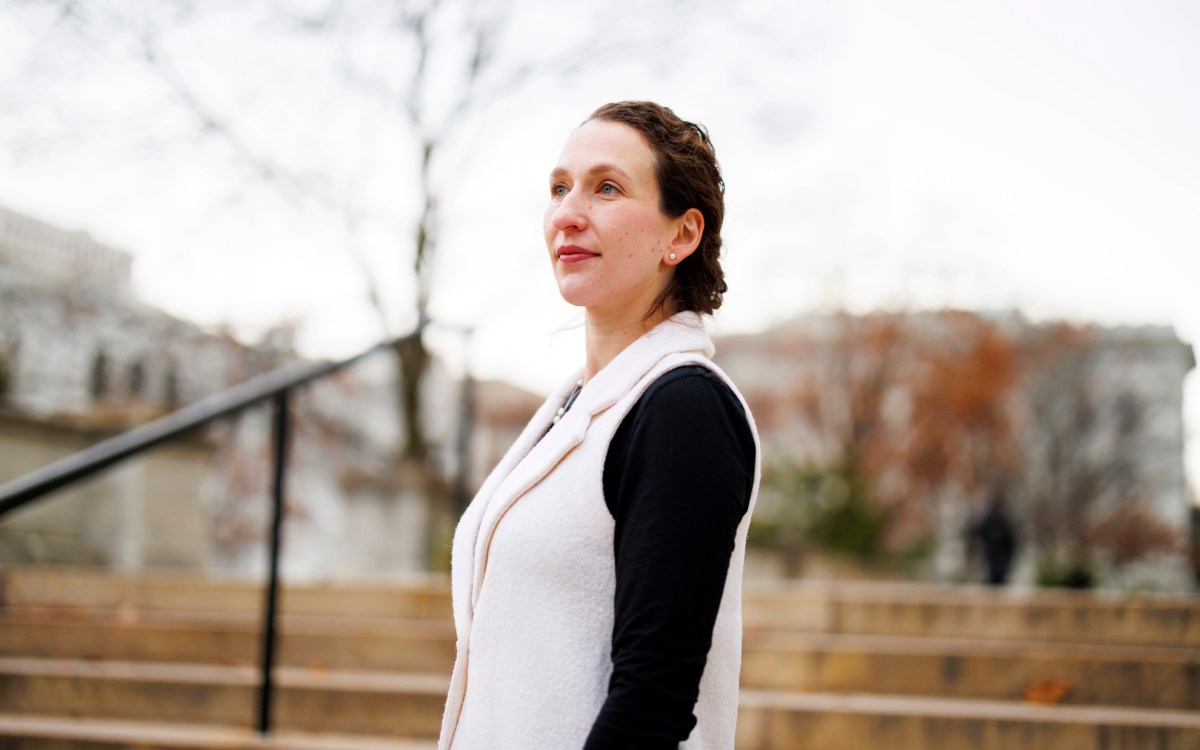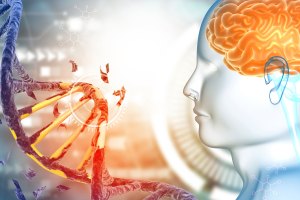Health
-

Social media detox boosts mental health, but nuances stand out
‘Wildly different reactions’ among participants, says researcher
-

New research finds 5 genetic signatures shared by 14 psychiatric disorders
Could advance treatment of mental illness with greater precision, less medication

-

Break in the case for long COVID investigators
Research highlighting chronic inflammation opens path to treating illness that affects millions of Americans

-

The problem with the school smartphone debate
Study finds most districts already regulate devices. Is the real issue enforcement?

-

Just who gets a say at FDA public drug-approval hearings?
New research shows negative voices are relatively rare in drug approval hearings.
-

Your digital twin might save your life
AI, statistics offer new possibilities for personalized medicine
-
Protein seen to animate cell skeleton
The cytoskeleton is made up of arrays of actin filaments that are arranged into widely different structures — parallel arrays that mediate muscle contraction, networks of branched filaments at the…
-
Study suggests surprising cause of arthritis
Julia Ying Wang, a Harvard Medical School assistant professor of medicine at Brigham and Women’s Hospital, was exploring whether a particular class of carbohydrates called glycosaminoglycans (GAGs) trigger an immune…
-
Alzheimer’s-associated enzyme elevated in key brain areas
A research report that appears in the September 2002 issue of the journal Archives of Neurology may improve understanding of the most common form of Alzheimer’s disease. “Our key finding…
-
Studies find milk consumption, use of HRT, and pregnancy may influence hormone levels associated with cancer risk in women
IGF-1 is a hormone important to the growth and function of many organs. Higher levels of IGF-1 have been associated independently with an increased risk of a number of cancers,…
-
Experimental drug shows promise in treating severe, often-lethal complication of stem cell transplants
An experimental drug called defibrotide reversed severe veno-occlusive disease (VOD) of the liver in more than one third of the stem cell transplant recipients enrolled in a study. VOD is…
-
Maternal history influences risk of asthma in children exposed to cats
Recent studies have gathered evidence that cat exposure during infancy can be protective against asthma. Research at Brigham and Women’s Hospital confirmed these findings in all but one situation: when…
-
Glowing mouse shows how immune alarm rallies troops against invasion
In the body, dendritic and other antigen-presenting cells initially handle all infections in the body. The dendritic cells lurk in the skin, lungs, gut, and other tissues. On sentry duty,…
-
Resistance mutation found for Gleevec
The drug Gleevec was stunningly successful in treating patients with chronic myelogenous leukemia (CML) at early stages of disease, but quickly stopped working in most patients with more advanced forms…
-
Brake on Axon regrowth discovered
Since nerve cell axons in the mature central nervous system do not regrow, neurologists have no way of fully treating paralysis due to injury. “About a hundred years ago, people…
-
Combined kidney and bone marrow transplantation allows patients to discontinue anti-rejection drugs
Megan Sykes, head of the bone marrow transplantation section of the Massachusetts Transplantation Biology Research Center and professor of surgery at Harvard Medical School, recently described how infusing kidney transplant…
-
Discovering what lives in your mouth
Your mouth is a great place for micropests to dwell. Glistening white plateaus, dark crevices, and slimy surfaces boast steamy temperatures of 95 degrees Fahrenheit. The microbes bathe in a…
-
Scientists discover chemical switch that determines muscle fiber type
Published in the Aug. 15, 2002 issue of the journal Nature, findings from a multi-institutional team describe the pivotal role of a molecule called PGC-1 in transforming “fast twitch” fibers…
-
Medical student engineers protein to dissolve blood clots
Heart attacks and strokes are caused by blood clots called thrombi that block blood flow in the arteries of the heart and of the brain. Body tissues become deprived of…
-
How the brain keeps extra calories from becoming extra pounds
What determines whether excess calories are turned into fat or are burned off? The key lies in a process known as diet-induced thermogenesis, an intricate system of communications masterminded by…
-
New multiple sclerosis drugs are found
Five years ago, scientists at Harvard University began to take a close look at Copolymer 1, a treatment for multiple sclerosis, that is put together from a string of amino…
-
Diabetes treatment linked to increased blood pressure
Type II diabetes accounts for the majority of cases of the disease, and is a huge public health problem: As many as 16 million individuals in the United States have…
-
Practice makes perfect
Harvard Medical School researchers conducted a study in which people were taught to type a sequence of keys on a computer keyboard as quickly and accurately as possible. A group…
-
Early administration of clot-buster drug may improve outcome for heart attack patients
The immediate goal of the treatment of heart attack patients is reperfusion, or the swift opening of the blocked artery and the restoration of blood flow to the heart muscle.…
-
Maternal bone lead levels pose toxic prenatal risk
Although much attention has been paid to public health efforts to reduce lead exposure in children between the ages of six months and five years, when environmental lead exposures (such…
-
Statistical work helps calm worries about anti-AIDS drugs and pregnancy
For years, physicians have prescribed antiretroviral therapies for HIV-positive, pregnant women to reduce the risk of babies being born with the AIDS virus. About 6,000 HIV-infected women give birth each…
-
Investigators discover method to stimulate brain rewiring after stroke
After a stroke, brain cells die and their connections to other parts of the brain are lost. In a study with rats conducted at Children’s Hospital in Boston, a naturally…
-
Researchers identify protein linked to tumor invasion
Metastasis occurs when cancer cells penetrate the boundaries of the tumor’s tissue and infiltrate the walls of blood vessels or lymph vessels, gaining a means of transport to other parts…
-
Six new breast cancer-susceptibility genes found
The discovery of six new cancer-susceptibility genes grew out of more than 10 years of research by Alan D’Andrea into Fanconi anemia, a condition known to affect only 500 families…
-
One in five women iron deficient, many children also at risk
Iron-deficient anemia reduces the oxygen-carrying capacity of red blood cells, thus decreasing energy and endurance. When there is not enough iron, the red blood cells are not able to produce…
-
Imaging test may detect gene for genetic cardiac disease
Hypertrophic cardiomyopathy (HCM) is the most common cause of cardiac death among young people and affects one in every 500 individuals, including professional athletes. It is characterized by an enlargement…
-
Researchers use therapeutic cloning to create functional tissue in cows
In a study, researchers obtained cow oocytes (donor eggs from cow ovaries) and removed and discarded the nuclei, which contain the cells’ genetic material, leaving behind just the shell. A…
-
Researchers uncover remaining critical insulin gene regulatory factor
Scientists have known the identity of two genes that can influence the ability of insulin genes to trigger insulin production in the beta cells of the pancreas. Through subsequent research…
-
New molecular model increases longevity and could allow you to eat cake, too
Scientists have known about the longevity benefits of caloric restriction since experiments in the 1930s showed that rats lived much longer if their food intake was severely restricted. Broadly speaking,…
-
Sea squirt cancer drug under test
In the United States, researchers at three Harvard University-affiliated hospitals — Massachusetts General Hospital, Dana-Farber Cancer Institute, and Brigham and Women’s Hospital — have been testing a powerful drug on…
-
Endostatin shows no toxicity and some clinical activity in latest report on phase I trial
Discovered in the Children’s Hospital Boston laboratory of Judah Folkman, Endostatin is a natural substance that blocks the formation of new blood vessels around and in tumors, thereby disrupting their…

